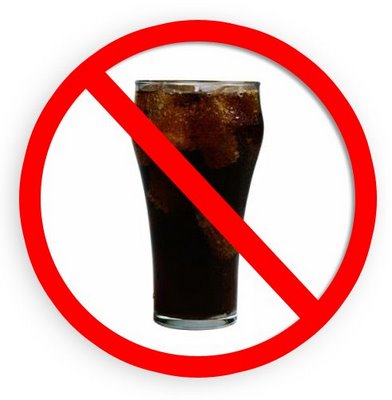BY MIKI JENNINGS
 It’s no secret that Americans are getting larger. Data released by the Centers for Disease Control (CDC) has shown that the average adult weighs more than twenty pounds heavier than their 1960’s counterpart.
It’s no secret that Americans are getting larger. Data released by the Centers for Disease Control (CDC) has shown that the average adult weighs more than twenty pounds heavier than their 1960’s counterpart.
Many point to poor diets and lack of exercise as the culprits of the numerous health problems plaguing Americans these days. One major detriment to our diets is the consumption of soda, and more specifically, high-fructose corn syrup. The sweetener is commonly found in carbonated beverages and many other processed foods.
Bigger, but not better for health
Weight has been a big issue in the United States for decades and statistics show that the average American has been steadily expanding the belt line than previous generations. With this is mind, some argue that a ban on unhealthy substances (such as soda) might be a good idea if it leads to healthier results.
“Let’s face it: 128 ounces of anything too much to be buying as a thirst quencher,” said 20-year old college student Eric Klump. “The tragedy is that we need a city government to stop us because so many lack self control.”
Soda ban in New York
With the goal of encouraging healthier habits, Michael Bloomberg, mayor of New York City, recently proposed a ban on sodas and other sugary drinks larger than 16 ounces.
That’s the equivalent of a small-size drink from McDonald’s and other fast food restaurants. The kid’s size 12-ounce cup is still four ounces more than the recommended serving size, but is dwarfed by the 30-plus ounce drinks that are commonly sold.
Bloomberg’s policy would prohibit restaurants, movie theaters and street vendors from selling larger drinks with the threat of a $200 fine. Certain drinks would be exempt, such as diet sodas, juice and alcohol, and those sold in grocery stores.
The proposal was met with criticism and rallied protests by New York citizens, holding up signs that defended their right to oversized beverages and mass amounts of sugar. Soda companies, local businesses and citizens alike showed solidarity against the policy. Angry citizens have gathered more than 70,000 signatures to show opposition against the ban.
…In arid Arizona?
According to the Arizona Department of Health Services, 29 Arizona residents die on average from heatstroke or sunstroke annually. In a state where free water is mandated and heat-related deaths are all too common, it could prove incredibly difficult to pry the Big Gulps out of people’s hands.
Some argue that it is one’s right to eat what they want, regardless of the health consequences.
“If people want to eat poorly and have health problems, that’s up to them,” said Thomas Read, 23. “Educating people about health effects of soda would be a much less ridiculous option, in my opinion.”
However, not everyone in Arizona is opposed to the idea.
“If it’s the ban on larger than 16 ounce servings, I’m fine with it as long as there’s no restriction saying someone can’t buy two or three (or more) for themselves if they’re really thirsty,” said Tod Santee, 45. “People were up in arms when New York began requiring calorie postings of all foods in fast food places but eventually got used to it.”
Health risks of high-fructose corn syrup
Despite the Corn Refiners Association’s efforts behind the upbeat “Corn Sugar” television ads that aired last year, people have begun to question the safety of high-fructose corn syrup-an ingredient found in sodas.
Data from the California Center for Public Health Advocacy found that Californian adults who drink one or more sodas per day are 27 percent more likely to be overweight or obese.
Other findings suggests that consuming too much sweet stuff on a regular basis contributes to tooth decay, and increased risk of diabetes, gallstones, heart disease, depression, and gout.
Sugar and high-fructose corn syrup has been shown to increase the risk of gout and increase symptoms in those who already have it.
For children consuming sodas and products with high-fructose corn syrup, the CDC reports that the instance of childhood obesity has tripled in the last 30 years -and in 2008, more than one third of children and adolescents were overweight or obese.
Need a change
While a ban might be too extreme for most consumers, many folks can agree that some kind of change is needed.
Recently, more sweetener substitutes have been put on the market, such as Stevia. Stevia has been marketed as a natural herbal sweetener that’s healthier than artificial sweeteners and high fructose corn syrup.
The Center for Science in the Public Interest has called on the CDC to put more effort into raising health awareness of soda consumption and the potential health risks.
But with statistically larger Americans at the risk of numerous health problems, how bad would it be to put a limit on how much soda we drink every day? Even if it were a self-imposed “ban,” we could all stand to eat a little healthier.
Should Arizona join New York in the ban to sell soda drinks larger than 16 ounces? Visit our Facebook page to post your thoughts or comment.





